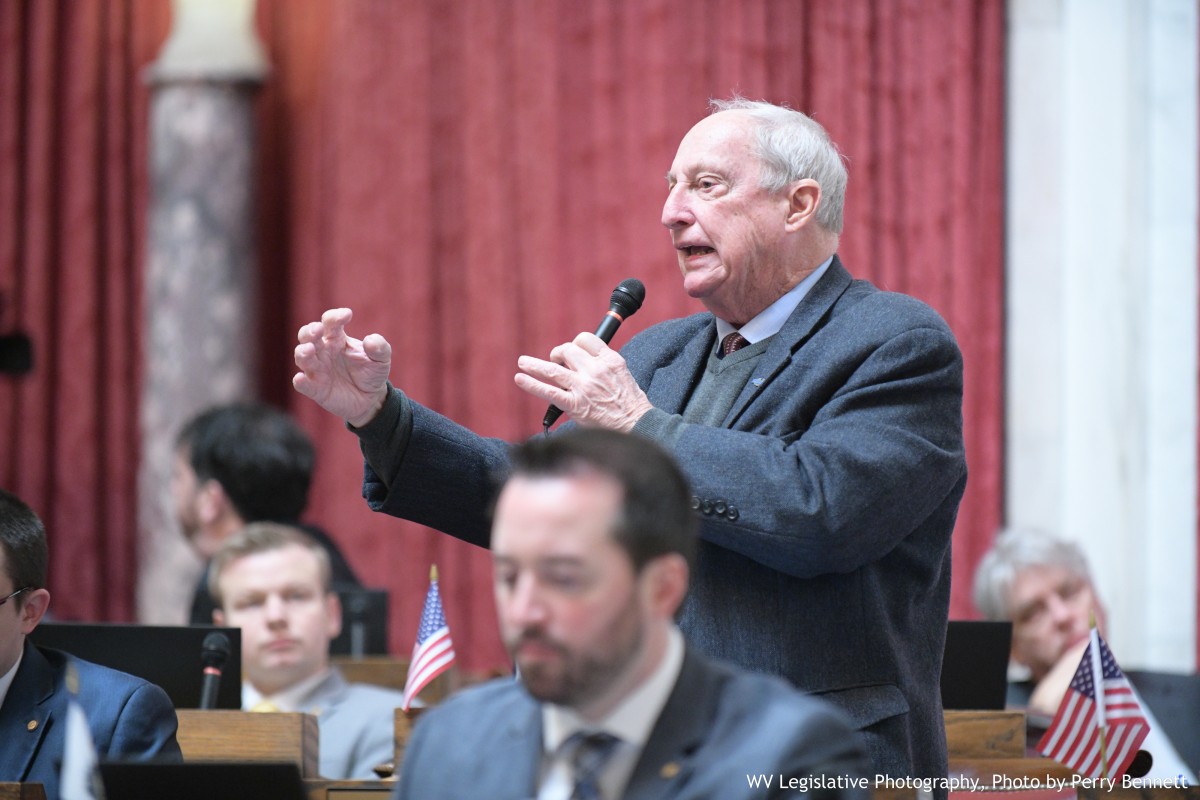CHARLESTON — The House of Delegates on Tuesday defeated several amendments aimed at broadening the scope of the last-dollar-in community college bill.

And it passed the Department of Environmental Protection water pollution rules bill that Delegate Evan Hansen, D-Monongalia had made several unsuccessful attempts to amend.
The last-dollar-in bill is SB 1. It was on second reading and up for amendment. The way the legislative process works, the members had to vote on approving the House Finance amendment to the bill the committee approved on Friday.
At issue was the second half of the bill: the last dollar in part, which establishes the WV Invests Grants Program.
As amended by Finance, eligible students can apply for grants to supplement their other financial aid to pursue career training via an associate degree or certificate at a community or technical college or a public four-year school that offers approved associate degree programs.
The public four-year schools that offer associate degrees are Fairmont State, Glenville, Bluefield, Potomac State, West Liberty and Marshall.
The first two proposed amendments would have replaced the Finance amendment as the new version of the bill.
Delegate John Doyle, D-Jefferson offered an amendment to include all public and accredited not-for-profit four year institutions offering approved programs. This fiscal note for the Finance version is about $9.9 million; the Doyle version bumped the cost to a maximum $26 million. It failed 46-56.
Delegate Isaac Sponaugle, D-Pendleton, offered one to create a Promise for All scholarship, with a price tag of about $50 million. It failed 40-59.
Members then took up several proposed amendments to the Finance version. One from Delegate Cody Thompson, D-Randolph, proposed to add all private four-year schools. It had a price tag of $20 million to $25 million and failed 42-54.
Delegate Jim Butler, R-Mason, offered three that previously failed in House Education. One eliminated all state funding for the grant and died 14-81. Another added a means test so the state wouldn’t have to foot the full $4,020 bill for someone denied federal aid, and died 27-69. The third tied tuition hikes to the federal Consumer Price Index and failed 36-61.
Two amendments passed. Education chair Danny Hamrick, R-Harrison, offered a technical correction that passed in a voice vote.
And Delegate Phil Diserio, D-Brooke, proposed one to encourage community and technical colleges to enter into collaborative agreements with federally assisted apprenticeship programs and issue a report on how those agreements fared. It had no price tag and passed 54-44.
The amended Finance amendment then passed in a voice vote. It’s up for third reading and passage on Wednesday.
SB 1 has two major parts. The first, which was unaffected by the amendments, establishes Advanced Career Education — ACE — programs in which public schools and post-secondary schools form partnerships to set up education paths for students to obtain associate degrees or advanced job certifications.
Students who take approved ACE programs – just out of high school or who need to return to the workforce and lack a degree – will pay no tuition; they are considered students under the state school aid formula, said Sarah Stewart with the Department of Education.
Under the WV Invests Grants portion, the Department of Commerce will develop a hierarchy of high-demand skilled professions and workforce needs with shortages. Eligible programs are those that offer programs to satisfy those workforce needs. The grant money goes to the school, not to the student.
Eligible applicants must be U.S. citizens or legal residents and have been a West Virginia resident for a year. They must have completed secondary education in a public, private or home school but have no post-secondary degree.
An applicant must be enrolled for at least six credit hours, be drug tested, participate in a community service program, and must remain in the state for two years following obtainment of the degree or certificate. A student who moves away within that window must repay all or part of the grant.
A grant may not exceed the average cost of tuition and fees at community and technical colleges: $4,040.
Water pollution rule
The Department of Environmental Protection air and water quality rules package, SB 163, was on third reading for passage. One of the rules bills wrapped into the package, SB 167, deals with water pollution standards governing allowable levels of 60 contaminants, including carcinogens.
A new set of DEP-recommended standards had been taken out of the rule, amended back in and amended out again. Hansen tried twice to get them back in, but failed. His latest effort was on Monday on second reading.
As it came out of Senate Judiciary and passed in the House, all stakeholders have until Oct. 1 to submit comments and recommendations to the DEP; DEP has until April 1, 2020, to re-submit its proposed standards for the 60 contaminants to be approved and enacted in 2021.
It passed 78-22 and goes to the governor.
TWITTER @dbeardtdp Email David Beard at dbeard@dominionpost.com




